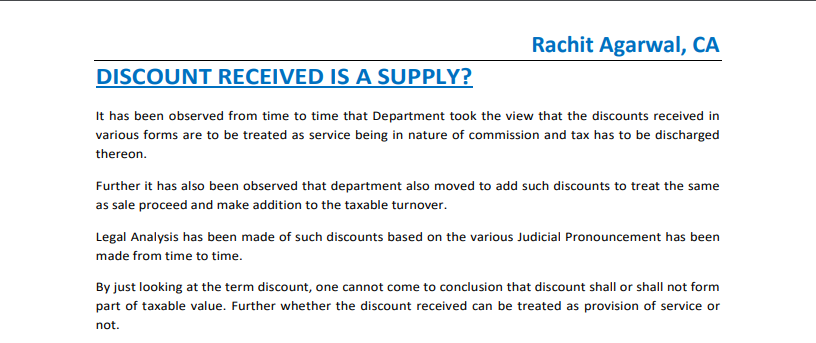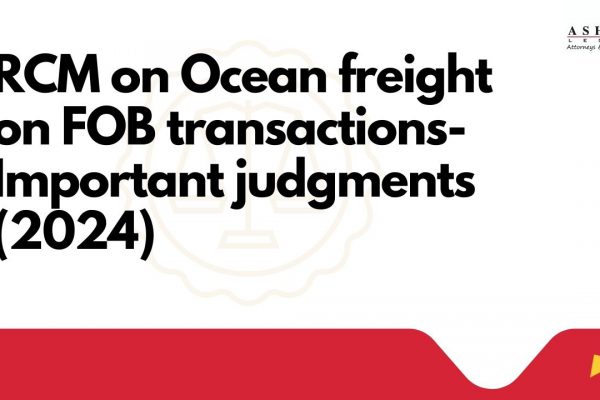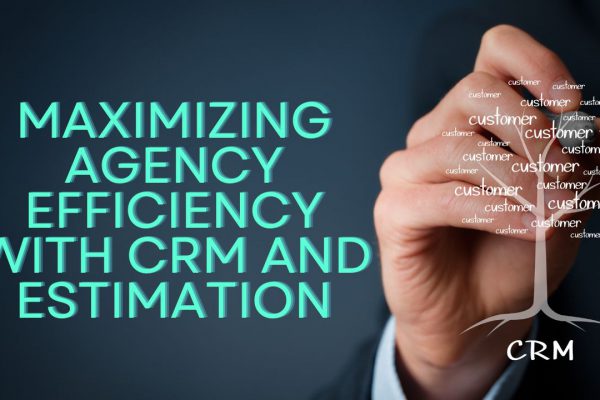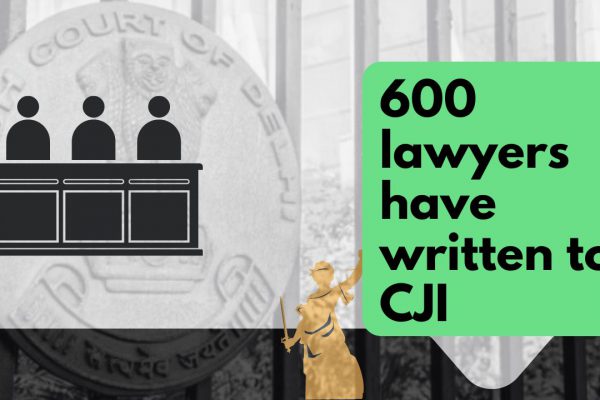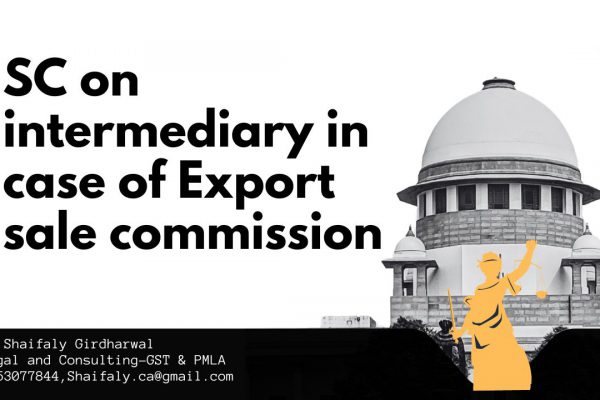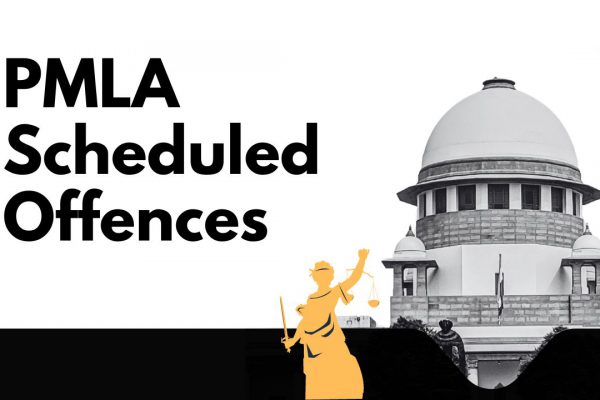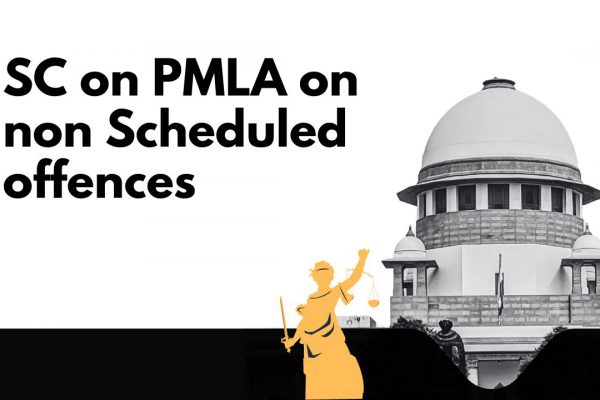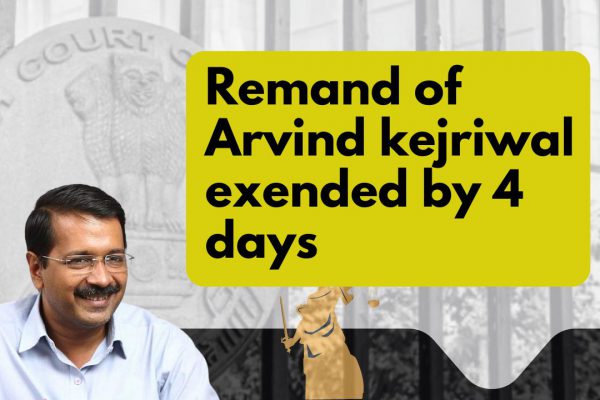Discount Received- Whether Liable to GST?
- Discount Received Is A Supply?
- Obligation To Pass The Discount To Recipient
- Discount In Lieu of Additional Activity
- Discount In Lieu of No Additional Activity
- Discounts Received In Form of Bonus/ Sales Incentive Is A Service?
- Discounts Allowed by Principal cannot be treated as Commission Paid- Supplier Perspective
- Discounts received to be Reduced from the Purchase Price
- Whether Discounts Received can be made part of Taxable Turnover?
- Whether Discounts Received is Provision of Service?
- Post Sale Discount- Will Not Affect Value of Supply- No Effect On The GST
- Read the copy:
Discount Received Is A Supply?
It has been observed from time to time that Department took the view that the discounts received in various forms are to be treated as service being in the nature of commission and tax has to be discharged thereon.
Further, it has also been observed that the department also moved to add such discounts to treat the same as sale proceed and make an addition to the taxable turnover.
Legal Analysis has been made of such discounts based on the various Judicial Pronouncement has been made from time to time.
By just looking at the term discount, one cannot come to the conclusion that discount shall or shall not form part of taxable value. Further, whether the discount received can be treated as a provision of service or not.
Related Topic:
Intellectual Property Rights Taxability Under GST Laws
Discount Received to be deducted from Purchase Value and not be added to Sales
Section 15(3) of the CGST Act deals with the discount –
The value of the supply shall not include any discount which is given —
(a) before or at the time of the supply if such discount has been duly recorded in the invoice issued in respect of such supply; and
(b) after the supply has been effected, if —
(i) such discount is established in terms of an agreement entered into at or before the time of such supply and specifically linked to relevant invoices; and
(ii) input tax credit as is attributable to the discount on the basis of the document issued by the supplier has been reversed by the recipient of the supply.
Hence the in-bills discounts and discount established vide agreement before the time of supply subject to the reversal of ITC by the recipient is allowable deduction from the value of the goods supplied by the supplier.
Related Topic:
GST Impact On Death of A Proprietor – Law and Procedure
Obligation To Pass The Discount To Recipient
Section 15(2)(b) of CGST Act, 2017– Any amount that the supplier is liable to pay in relation to such supply but which has been incurred by the recipient of the supply and not included in the price actually paid or payable for the goods or services or both;
Amount liable to pay is a very wide term. It says “any amount”. In view of the provision, the amount which the taxable person liable to pay to the recipient will be included the assessable value.
Related Topic:
Limit on cash sales under GST and IT Act
Circular No 105/24/2019-GST dated 28th June 2019 which was rescinded has cast the responsibility on the supplier to charge the tax on the GST amount if there is an obligation to pass the discount to the recipient. GST has to be charged on the gross amount without taking the effect of the discounts given to the recipient.
It is further clarified that if the additional discount is given by the supplier of goods to the dealer to offer a special reduced price by the dealer to the customer to augment the sales volume, then such additional discount would represent the consideration flowing from the supplier of goods to the dealer for the supply made by the dealer to the customer. This additional discount as consideration, payable by any person (supplier of goods in this case) would be liable to be added to the consideration payable by the customer, for the purpose of arriving value of supply, in the hands of the dealer, under section 15 of the CGST Act. The customer, if registered, would be eligible to claim ITC of the tax charged by the dealer only to the extent of the tax paid by the said customer to the dealer in view of the second proviso to subsection (2) of section 16 of the CGST Act…
Hence the obligation on part of Recipient to Pass discount from Supplier- Department vide above circular has clarified that in respect of the discounts received from the supplier with a condition to pass the amount to the customer, then such discounts would represent the consideration flowing from the supplier of goods to the dealer for the supply made by the dealer to the customer. This additional discount as consideration, payable by any person (supplier of goods in this case) would be liable to be added to the consideration payable by the customer, for the purpose of arriving value of supply, in the hands of the dealer, under section 15 of the CGST Act.
Related Topic:
Handbook on Accounting Treatment under Goods and Services Tax (GST)
Discount In Lieu of Additional Activity
The circular No. 105/24/2019-GST dated 28th June 2019 (Circular Withdrawn on 3rd October 2019)while clarifying has created two scenarios in respect of the treatment of post-sales discount.
– Recipient doing an additional activity: In lieu of post-sales discounts, the recipient is required to do some additional activities like sales drive, advertisement campaign, exhibition, etc. Such post-sales discount to be treated as consideration of the supply of services by the recipient to such supplier of post-sales discount and GST to be liable on such amount of discount.
Discount In Lieu of No Additional Activity
The circular No. 105/24/2019-GST dated 28th June 2019 (Circular Withdrawn on 3rd October 2019)while clarifying has created two scenarios in respect of the treatment of post-sales discount.
– Recipient not doing an additional activity: In case the recipient is not doing any additional activity in lieu of the post-sales discount. It would not be liable to be part of the value of the supply of original transaction provided it fulfills the condition of clause (d) of subsection (3) of section 15.
Discounts Received In Form of Bonus/ Sales Incentive Is A Service?
Discounts received either in the form of bonuses or being sales incentives cannot be treated as a supply of service. No service being rendered. Incentives or Bonuses are received on the purchase of goods from the manufacturer by the dealer. Bonus/Incentives are nothing but the volume discounts/ Trade Discounts. Further such discounts are received on the principal to principal basis. It is not the term used but the most important facts are the nature of the transaction. If the nature of the transactions between the two persons is such as to treat the same as discount, the terminology used does not matter whether the discount has been given the name as bonus, incentive, commission, and others.
CESTAT West Zonal Bench, Mumbai in case of Toyota Lakozy Auto Pvt Ltd Vs C.S.T Ex Mumbai-II. Commission/incentive received under dealership agreement with the manufacturer for the supply of vehicles on the principal-to-principal basis on which title and risk, passed on to assessee when vehicles are Excise cleared and placed on a common carrier. Assessee claiming that depending on order quantity invoices raised by the manufacturer after according discounts designated as commission/incentive merely as management terminology – HELD: In view of the settled position in Tribunal’s decisions, discounts received on procurement of vehicles from the manufacturer not liable to tax as business auxiliary services – Demand set aside.
CESTAT West Zonal Bench, Mumbai in case of Jaybharat Automobiles Ltd Vs C.S.T Mumbai. Incentives received from a car dealer – Relationship between assessee and dealer on principal to principal basis – Only because some incentives/discounts received under various schemes of the manufacturer not to lead to the conclusion that incentive received for promotion and marketing of goods. Head under which incentives are shown in Ledgers not material, nature of transaction of sale, relevant. Such transactions cannot fall under the service category of Business Auxiliary Service when normal market practice to offer discounts/incentives to dealers – Issue settled in case of Sai Service Station Ltd. – Sections 65(19) and 73 of Finance Act, 1994.
CESTAT West Zonal Bench, Mumbai in case of Sai Service Station Ltd Vs C.S.T Mumbai. Assessee authorized dealer of car manufacturer i.e. Maruti Udyog Limited – Incentives received for sale target set out as per the circular issued by MUL. Held that These incentives are in the form of trade discount. In these circumstances, we find no infirmity in the adjudication order whereby the adjudicating authority dropped the demand. Hence, the appeal filed by the Revenue has no merit.
CESTAT, REGIONAL BENCH, CHANDIGARH in case of Canon India Pvt Ltd Vs COMMISSIONER OF C. EX. & S.T., LTU, DELHI. Subsidy/ Discount received from export in form of reimbursement not be considered as consideration for advertising, sales promotion and marketing by such distributor when he is not an agent and goods imported on principal to principal basis and title thereof passes on him from exporterHence sale of imported equipment by sold authorized distributor in India not taxable under the category of Business Auxiliary Services.
Discounts Allowed by Principal cannot be treated as Commission Paid- Supplier Perspective
In a number of Judicial Pronouncements, it has been held that the discounts received by the manufactures to the dealers are not the commission. Further such discounts are deductible from the taxable value. In view of the above, it can be safely concluded that such discounts received cannot be treated as commission in the hands of the recipient. The colors of the transactions cannot be different among the supplier and the recipient.
CESTAT South Zonal Bench, Chennai in case of C.C.E Chennai Vs MAG TORQ POWDER CLUTCHES PVT. LTD. Goods were directly consigned to the ultimate buyer through the dealer M/s DIS by respondents. The invoices were issued in name of DIS. Further, DIS issued an invoice in the name of the ultimate buyer. The ultimate buyer was allowed discounts of 20% and M/s DIS was allowed a discount of 30%. Held that M/s DIS cannot be treated as commission agent as the transaction is on principal to principal basis. Further such discounts are allowed as a deduction from the taxable turnover.
Supreme Court of India case of COMMISSIONER OF CENTRAL EXCISE, TRICHY Versus SUPREME INDUSTRIES LTD- Duty on part of discount declared in price lists allowed to the distributor by the assessee – Distributors were not commission agents – Abatement of discount for purpose of duty payment justified – Section 4 of Central Excise Act, 1944.
Discounts received to be Reduced from the Purchase Price
Discount received by the assessee is allowed to treat the same as the reduction in the purchase price.
In various Judicial Pronouncements, it has been held that in respect of discounts allowed by the supplier are to be reduced from the taxable/ assessable value.
Hence vice-versa it can be construed that the purchase value to be reduced from the discount received from the suppliers by the recipient of the transactions. There cannot be two possible views on the treatment by the supplier and the recipient.
Supreme Court of India in case of Southern Motors vs the State of Karnataka. It was held that the sale/purchase price has to be adjusted on a combined consideration of tax invoice or bill of sale as case may be along with accounts reflecting trade discount and the actual price paid.
Supreme Court of India in case of Maya Appliances (P) Ltd vs Additional Commissioner of Commercial Taxes. Assessee, based on a regular trade practice, allowed quarterly discount to its dealers on basis of sales turnover generated by a dealer in every quarter of the financial year – It gave a discount to dealers in sales invoices raised in the subsequent quarter – It claimed discount as a deduction from total turnover while arriving at taxable turnover. Held that in computing taxable turnover for the relevant year, the assessee would be entitled to a deduction of trade discount.
Supreme Court of India in case of Commissioner of Central Excise, Mumbai-V vs Mahanagar Gas Ltd. The assessee was engaged in the manufacture of Compressed Natural Gas (CNG) from Nature Gas and distribution thereof – It sold CNG to Oil Marketing Companies (OMCs) for resale to ultimate buyers and allowed certain discount to them from the retail sales price, which was termed as commission/trade margin, etc. in agreements – It excluded trade profit/commission/discount given to OMCs from the retail sales price and paid duty on net sales price charged to OMCs – Adjudicating Authority held that assessable value considered by the assessee for sale of CNG directly to buyers should be assessable value for payment of duty for CNG supplied to OMCs, as against payment of duty on net sales price charged to OMCs – He, therefore, confirmed demand on differential duty – Tribunal held that assessee was not liable to include the amount of discount in the assessable value for purpose of payment of duty and payment of duty on net sales price charged to OMCs was correct. Held that assessee was justified for including the amount of discount in the assessable value.
Related Topic:
Input Tax Credit Reversal on Discount Received
Whether Discounts Received can be made part of Taxable Turnover?
Discounts received can never be part of the Taxable Turnover.
High Court of Madras in case of U.Ravi Vs Commercial Tax Officer, Vellore District. In terms of provisions of Explanation II(ii) of Section 2(41) of Tamil Nadu VAT Act, 2006, discount cannot be added in taxable turnover of the assessee – Assessment order set aside to the limited extent that it seeks to include the discount in taxable turnover of petitioner – Assessing officer directed to redo assessment accordingly – Impugned order of Single Judge set aside – Tamil Nadu VAT Act, 2006.
Whether Discounts Received is Provision of Service?
In an application filed before AAR, New Delhi by Akqa Media India Private Ltd [2016 (46) S.T.R. 820 (A.A.R.)]- Discounts received whether in the capacity of Principal to Agent or Principal to Principal not liable to tax where the giving of discount is not under any legal obligation and it is purely discretionary.
Model-I- Invoice Issued in Name of End Consumer: The Advertisers (the clients) enters into a contract with the advertising agency (like the applicant) to advise them for placements of advertisements in various media. The Media Owner raises its invoices for the cost of the media inventory sold on the advertiser and hands over the said invoice to the advertising agency. Advertising agency makes the payment for the media inventory to the Media Owners on behalf of the advertiser after retaining its commission. Advertising agency further raises an invoice on the advertiser for its fee/agency commission plus applicable service tax (including cess, if any) thereon. Advertising agency adjusts the payment made to the Media Owner from and out of advance or seeks reimbursement of costs of advertisement plus applicable taxes (including cess, if any) charged by the media owner. The advertising agency pays the service tax (including cess, if any) on the agency commission charged by it to the advertiser. The advertiser takes the credit of service tax paid by the Media Owner on the cost of the media inventory, based on the tax invoice issued in the name of the advertiser. Further, advertiser takes credit of service tax paid by the advertising agency on the agency commission, based on the tax invoice issued in the name of the Advertiser by the advertising agency. Post the completion of the transaction, at the year-end, Media Owners, suo motu, at their sole discretion, may give incentives/volume discounts to the applicant (i.e., advertising agency).
Model-II- Invoice issued as Principal to Principal- Advertising agency is contractually engaged by the advertiser to advise them with regard to media planning and placements of advertisements in various media. The Media Owner raises its invoice for the cost of the media inventory sold on the advertising agency. Advertising agency further raises an invoice for the advertiser. The advertising agency takes the credit of service tax paid by the media based on the tax invoice issued in the name of the advertising agency… The advertising agency pays the service tax (including cess, if any) on the gross amount charged to the advertiser. The advertising agency receives the payment from the advertiser for the consolidated amount. Media Owner, suo motu, at its own discretion may give incentives/volume discounts to the applicant (i.e., advertising agency).
For an activity to be Service there should be nexus between Activity and Consideration
It is to be observed that in the definition of ‘service’, there has to be nexus between activity and consideration. In case, there is no nexus between the activity and consideration, such activity shall not fall under the definition of “service”, as the concept “activity for consideration” involves an element of the contractual relationship. This relationship could be express or implied, for which the burden of proof would be on the Department. In the subject case, no iota of the evidence has been produced before us by the Revenue to indicate that there is an activity undertaken by the applicant, which resulted in Media Owner giving volume discount to the applicant, especially when the choice of selecting Media Owner is reported with the advertiser and not with the advertising agency (applicant). Therefore, the volume discount that could be received from the Media Owners by the applicant is not in relation to any activity undertaken by the applicant. Therefore, it is not a service.
Whether Receipt of Discounts is for Doing an Act
Revenue has also argued that the applicant provides Declared Service in terms of Section 66E(e) of the Finance Act, 1944 to Media Owners. Section 66E(e) reads as under :
66E. The following shall constitute declared services, namely;
(e) agreeing to the obligation to refrain from an act, or to tolerate an act or a situation, or to do an act.
It is observed that there is no agreement or contractual obligation between the applicant and the Media Owner to give a volume discount to the applicant by the Media Owner. Volume discount is not fixed and is to be given at the discretion of the Media Owner. Further, the volume discount is gratuitous. Applicant/advertising agencies cannot claim it as a matter of right. Therefore, the applicant is not providing declared services to the Media Owner.
Whether Receipt of Discounts is for Promotion or Marketing Services
Revenue has raised another issue that the applicant provides promotion or marketing services to the Media Owners by giving preferential treatment to the Media Owners, which provide volume discounts/incentives. It is noticed by us that Media Owners are not under any legal obligation to pay volume discounts and it is purely discretionary on the part of Media Owners. The applicant is not carrying out any activity to promote any Media Owner’s business. Further, which Media Owner is to be engaged, is the decision of the advertiser and not of the applicant. Therefore, the applicant cannot be said to provide promotion or marketing services to Media Owners.
Post Sale Discount- Will Not Affect Value of Supply- No Effect On The GST
In an application filed before AAR under GST, Karnataka by Kwality Mobikes Pvt Ltd [2019 (30) G.S.T.L. 668 (A.A.R. – GST)]- The authorized supplier is issuing a tax invoice on the supply of goods to the Applicant and the Applicant is taking credit of the input tax charged in the invoice. The Applicant when makes more purchases is eligible for the volume discount on purchases and a credit note is issued by the authorized supplier and no adjustment of the price is made in respect of the goods already sold nor any adjustment of GST is made in the credit note. The Applicant is also not claiming any reduction in input tax credit already claimed by him as it does not affect the price of the goods sold. Applicant when sells more than his target is eligible for the incentive which is provided by the authorized supplier in the form of a credit note. Held Since the credit note is issued as a post-sale event, the same is not covered under the 15(3)(a) of the above provision. Further, the Applicant has not reversed the input tax credit attributable to the discount received in the form of credit note from the authorized supplier, the same cannot be covered under 15(3)(b) above. Hence in view of the above, the credit note issued by the supplier in the pertinent case does not have any effect on the value of supply and hence is only a financial document for account adjustment for the incentive provided. Hence there is no effect on the GST.
Read the copy:
If you already have a premium membership, Sign In.
 CA Rachit Agarwal
CA Rachit Agarwal


